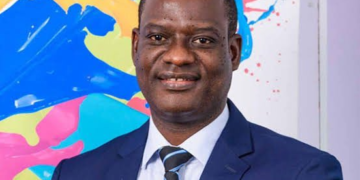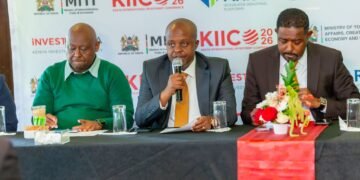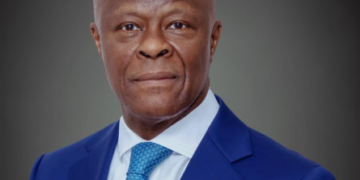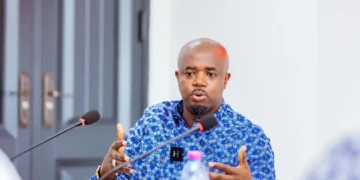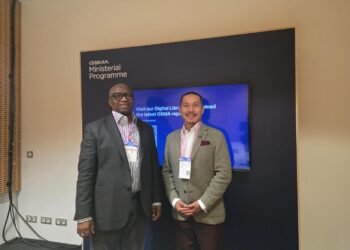Controversy has continued to trail moves by some telecommunications companies to implement new charges for Unstructured Supplementary Service Data (USSD) transactions enjoyed by bank customers across the country.
MTN had opened the pandora box on October 20, with the notice: “Please note that from October 21, we will charge N4 per 20 seconds for USSD access to banking services. Thank you”.
Afterwards, all hell was let loose as customers exploded in angry tweets. Some went as far as sending messages to their banks seeking clarification on the matter, with many of the banks responding by damning the MTN notice:
“Our fees and charges on the USSD service remain unchanged and all our services are available,” Access Bank, for instance, tweeted back to its customers.
But following the public outcry on what was considered an additional burden on customers, the Minister of Communications and Digital Economy, Dr. Isa Pantami, immediately ordered network operators to shelve implementation of the new charges from October 21.
He equally directed the industry regulator, the Nigerian Communications Commission (NCC), to ensure the operators, especially MTN Nigeria, maintained the status quo pending full briefing on the matter.
Pantami had said in a statement by his spokesperson, Uwa Suleiman , that his office “is unaware of this development”.
The Minister therefore “directed the sector regulator, NCC, to ensure that the operator suspends such plans until the minister is fully and properly briefed”.
From the side of the banking industry, the governor of Central Bank of Nigeria (CBN), Mr. Godwin Emefiele, also waded into the matter by directing commercial banks and other financial institutions to shun the charges.
Emefiele said banks had been directed to move their services to telecoms operators that are willing to offer such service at the lowest or even zero charges.
The CBN boss said: “You are all aware that there is a drive for us to deepen financial inclusion in Nigeria. I had made my commitments to Bill Gates Foundation as well as Queen Maxima that we would deepen financial inclusion and that by 2020, the rate of financial inclusion would have accelerated to about 80 per cent.
“At this time, we are close to about 65 per cent. We moved from about 42 per cent to 65 per cent in about 18 months and we believe that we can achieve this 80 per cent if everybody, that is, the banks and telecoms cooperate with us.
“About five months ago, I held a meeting with some telecoms companies and leading banks in Nigeria at the CBN in Lagos and the issue on cost of USSD came up. We came to a conclusion that the use of USSD is a sunk cost, meaning that it is not an additional cost on the infrastructure of the telecoms companies. But the telecoms companies disagreed with us and said it was an additional investment in infrastructure and that for that reason, they needed to impose the charge. I appealed to them to please review this downwards and they refused.
“I understand that about three to four weeks ago, rather than reduce it, they went ahead to increase by 300 per cent. I opposed it and I have told the banks that we would not allow this to happen. The banks are the people who give these businesses to the telecoms companies and I leave the banks and the telecoms companies to engage.
“I have told the banks that they have to move their business and move their traffic to a telecoms company that is ready to provide it at the lowest possible and if not at zero cost and that is where we stand and we must achieve it.”
Bank CEOs
The Body of Bank Chief Executive Officers (CEOs), the next day, came out with advertorials to denounce the MTN narrative.
They argued that their banks did not mandate MTN to start charging customers for USSD transactions directly.
“The decision on whether, and what amount, to charge a customer for accessing USSD is entirely that of the telco company, in the same way a customer is billed for calls, SMS and data.”
But, despite the denial, a leaked memo exposed their rump.
In a letter to the Association of Licensed Telecommunications Operators of Nigeria (ALTON) by this Body of Banks’ CEOs dated September 16, they proposed an “orderly implementation” of end-user billing for bank customers, “aligning with the standard practice for USSD billing.”
“Customers using non-bank services already pay for USSD sessions,” the leaked missive showed. It was signed by 13 bank CEOs.
It equally exposed the banks refusal to share the revenue from USSD transactions with the telcos.
GTBank, for instance, charges N50 plus VAT for instant transfers to other banks and N20 plus VAT for GTB-to-GTB transfers.
The telcos, who provide the platform for the USSD service, had proposed to take a cut of N4.50k per 20 seconds from the charges paid by customers to the banks.
However, the banks kicked against it, alleging that it would raise the cost by 450 per cent.
It perhaps on the basis of that the Association of Licensed Telecommunications Operators of Nigeria (ALTON ) had called on the NCC and CBN to summon the stakeholders of both the financial and telecoms industries for a meeting concerning the USSD dispute.
The meeting, the association posited, would be beneficial to the consumers and stakeholders at large as it would help to address and clarify the controversial issues that occurred in the past few days regarding the USSD charges.
The ALTON Chairman, Gbenga Adebayo, explained that the USSD channel had changed over time from a channel used only for telco-related services, such as balance inquiry and recharges, to one that can be used for services relating to financial, insurance, agricultural and government services, among others.
He said the USSD channel is now delivered using the Standalone Dedicated Control Channel (SDCCH) which is also used for call set-up, SMS set-up, and delivery. The high usage of the USSD channel has made the telcos to bear additional costs which emanate from additional SDCCH channels.
Reacting to the development, the President of the Association of Telecommunications Companies of Nigeria (ATCON), Olusola Teniola, said in a telephone chat: “ Look, the issue around USSD, SMS and MMS and other data type services that are being used on the mobile network operator network is obviously regulated by NCC, and the Commission ensures that the prices charged for the services are supported by its studies. Now, recent studies suggests that the whole financial ecosystem is utilizing the USSD codes for numerous financial banking services. The intention of the USSD code wasn’t meant to be used in this manner. It was meant to be used for supplementary services that the telcos would render to its subscribers for free. I think it was CBN that mandated the banks to start charging a certain fee for the USSD and this obviously prompted the telcos to act to ensure that their platform is being used fairly. And what we mean by that, other sectors that use the USSD code do not charge their clients. Hence, the banking sector is using the same platform and charging their customers.
“Then there is discrimination and it is unfair to telecom companies that are giving the service, which they’re not earning income from but the financial service providers are. So, that ambiguity has caused this concern and it is justified concern. And I believe that NCC and the Ministry of Communications have to look into this, that all services using the telecoms network services need to contribute to the growth of infrastructure. Because if, there isn’t any investment in infrastructure, there will be congestion on the networks, which will add quality of service issues and therefore affect service to the consumers. So, I believe that the Ministry of Communications needs to go further to ensure that there is a framework with other sectors and regulators over the usage of USSD because, as you know, technology is a disruptor, it should be used to save costs, not to increase costs of services.
“So, there has to be an agreement among those service providers, both the financial, health, insurance and other sectors, on how they should pay for the usage of USSD to ensure that the costs are not passed on to the consumers.
This was as industry experts have continued to comment on the raging controversy. For instance, Jide Awe, an ICT expert said: “There is a need to rethink the introduction of USSD Code charges. It does not appear to be sensitive to the yearnings and aspirations of Nigerians. Since it is an extremely popular electronic transaction system, it will not only add to the cost of online transactions but will hinder the efficiency and productivity being introduced into the economy through the use of electronic systems and approaches.”
Awe explained that with the current harsh economic climate, it would be quite tough and hard on Nigerians who have already embraced this smart approach to popular transactions.
“It is also quite sudden, without any prior communication with customers or sensitisation. There needs to be much better communication and engagement before introducing such sensitive measures. “Talk with” the public and stakeholders not “talking to” them in such matters.
“These additional costs and charges hinder the much-needed digital inclusion and development required to make the nation more competitive and productive in today’s digital era.
It goes against vision of digital transformation pursued by government as expected of smart nations”, he said.
Another expert, Tade Jokotola, urged the banks to stop playing games and allow the process of opening up the financial services space to all players.
He said, “The Federal Government should also intervene by engaging knowledgeable people to professionally and dispassionately look into the issues between the banks and the telcos. A situation
where the powerful banks are running the CBN through their former colleague, who is the CBN governor, will not augur well for economic growth, with particular reference to financial inclusion, a pivotal aspect of the Federal Government’s economic policy.
“It’s important that Nigerians know who their real enemies are. The telcos are investing huge resources in network infrastructure but the banks want to continue to fleece their customers and thereby reaping where they did not sow. That is unjust and unfair.”



